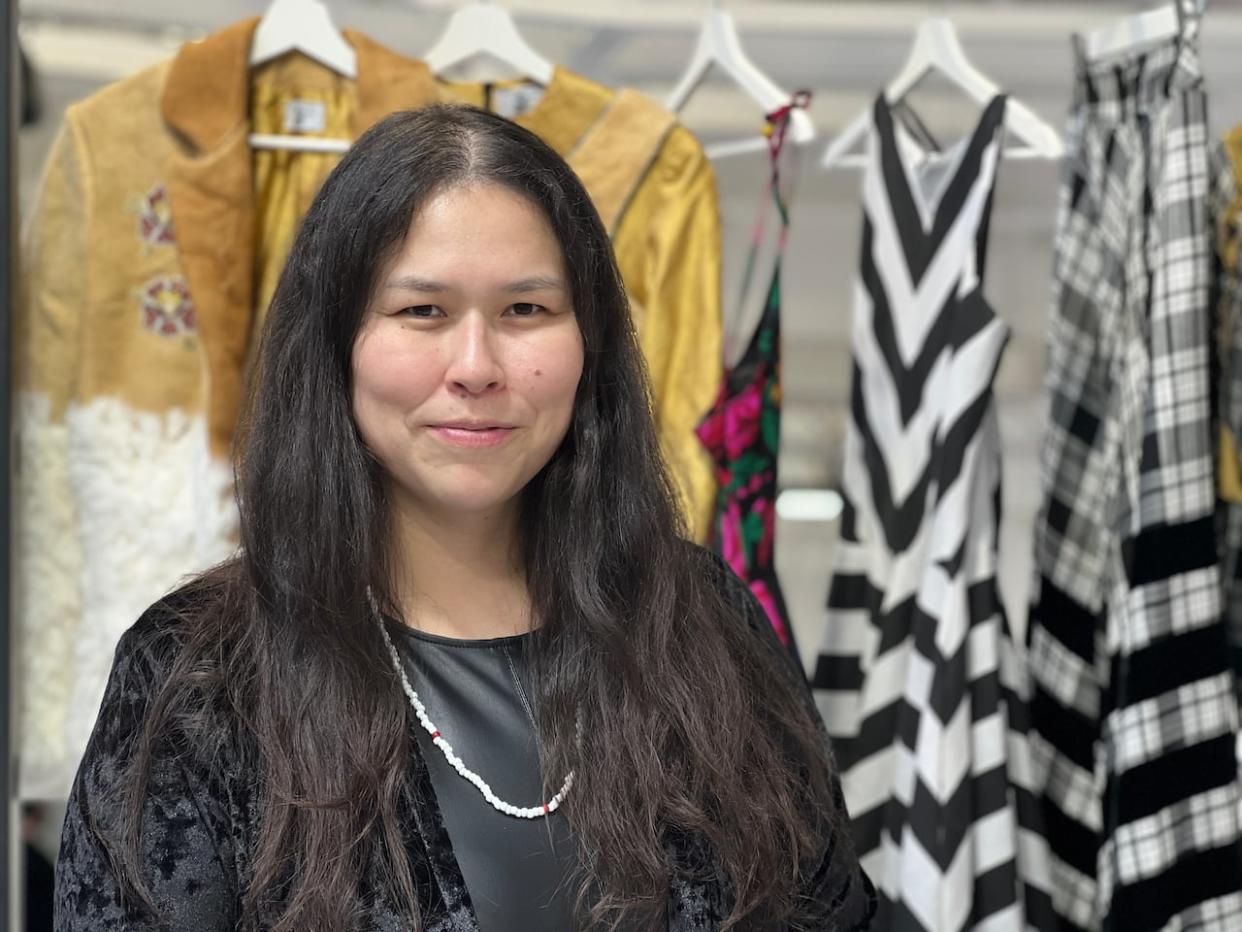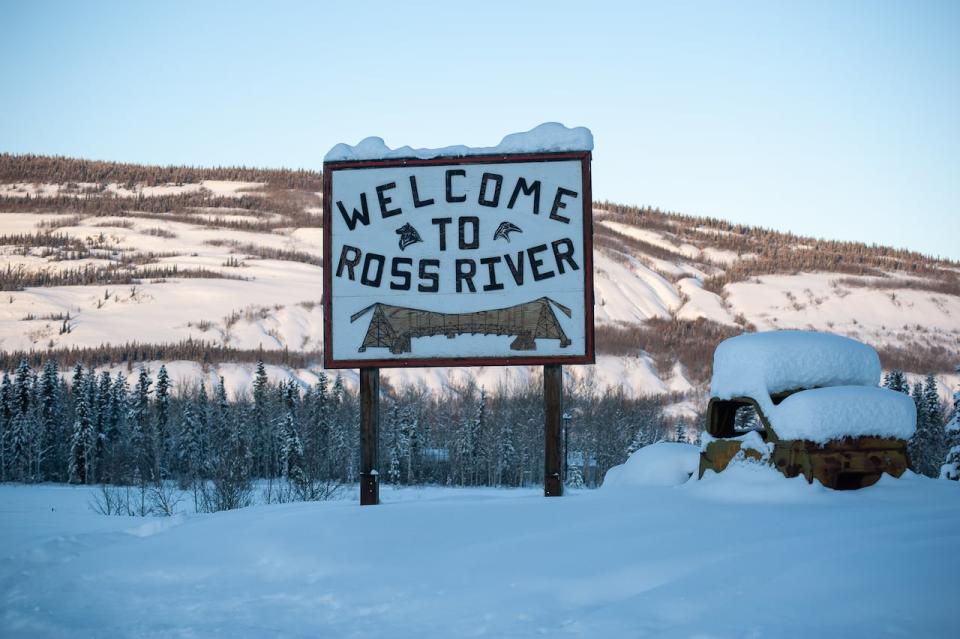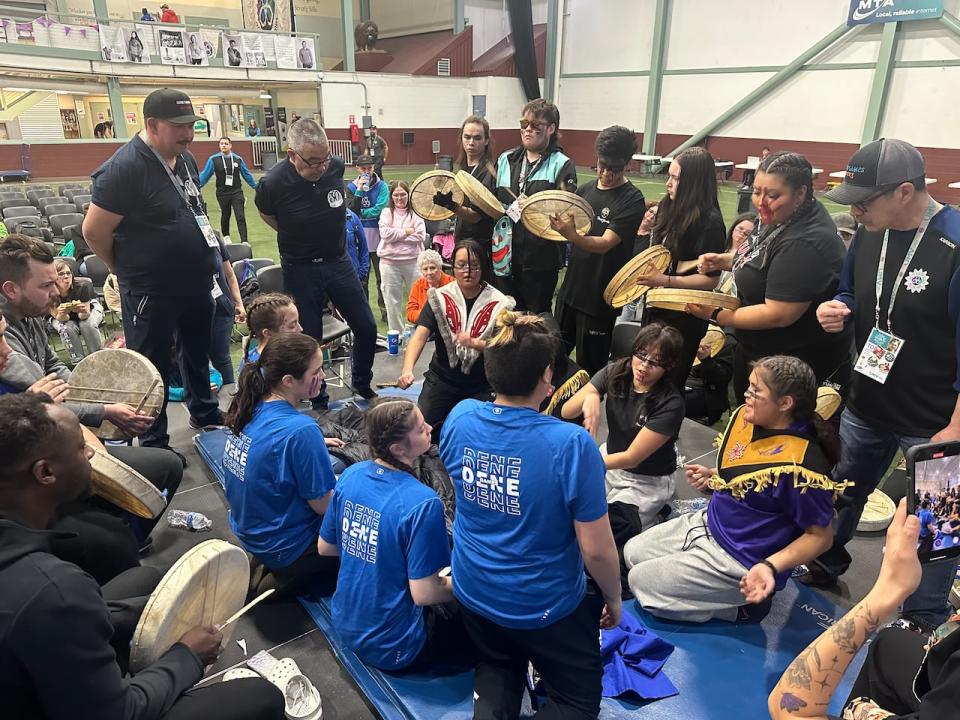Athlete from Ross River, Yukon, says living far from Whitehorse led to removal from AWG team

A woman from Ross River, Yukon, says she wasn't allowed to compete in the Arctic Winter Games (AWG) this year after she was unable to attend multiple practices in Whitehorse leading up to the event.
Robyn McLeod says the experience highlights the inequality of access to sport in the territory as the current system makes it easier for athletes from Whitehorse to make teams.
CBC News asked Team Yukon for a list of where each athlete is from. It showed that of the approximate 350 athletes attending the 2024 Arctic Winter Games, over 325 — about 93 per cent — are from Whitehorse. According to Yukon population statistics from September 2023, about 79 per cent of the territory's population lives in the Whitehorse area.
McLeod, who hoped to compete in the new women's category in the Dene Games at the circumpolar event underway this week in Mat-Su, Alaska, argues that changes should be made to make the event more accommodating.
She says it's an issue for people who live in smaller communities, including athletes who are parents. She said access to child care, as well as travel costs and other factors, prevented her from attending practices in Whitehorse.
'I told them that's not sustainable'
McLeod has a long history in the Dene Games, competing in it for years in the Northwest Territories, where she's originally from, and also teaching youth how to play in the sport. When the women's open category was included in the 2024 Arctic Winter Games she decided to compete in territorials and won three out of four of the events.

Judith Naluiyuk from Team Nunavik competes in Dene Games on Tuesday at the Arctic Winter Games in Mat-Su, Alaska. The open women's category in Dene Games was just added to the 2024 games, something McLeod said she's advocated for. (Félix Lebel/Radio-Canada)
She was later informed that she would need to attend around 70 per cent of the practices which would take place in Whitehorse. She said that meant she was expected to make around 11 trips, a five-hour drive each way, to the capital.
"I told them that's not sustainable for me, I'm not able to go," she said.
She said she managed to attend one practice and brought her two kids along, both under three years of age, but it was difficult.
"My kids were crying by the end and I was like, OK, I got to take them out of here, this is too much for them," McLeod said.
She said the coach of the team took issue with her leaving early as the two were going to discuss how she could manage being on the team while living far away.
"I guess that was an issue for the coach, like to leave because my kids were crying," she said.
McLeod said she wanted to make a plan with the coach, but she wasn't getting many responses. She also trained on her own time in Ross River.

A sign leading into the community of Ross River, a community of about 400 people in central Yukon. (Julien Gignac/CBC)
McLeod said in late February she was informed that she was off the team.
"There wasn't like a phone call from the coach being like, 'you have to come or else you're being dropped from the team.' There was no warning," she said.
She said she wrote a letter to the Yukon Aboriginal Sport Circle, the governing body of Dene Games in the territory, about the situation and said she wanted an appeal process and that she was disappointed by the lack of communication provided to her throughout.
She posted her letter and the response she received to Facebook.
She said she has a friend who offered to help her with child care, but that friend would be busy during the practices and also had her own children to take care of so it would be too much for her.
McLeod expected it to cost over $750 for each trip to Whitehorse, not counting food.
Promoting sports in rural communities not a mandate, Sports Circle says
Gordon Reed, president of the Yukon Aboriginal Sport Circle, confirmed with CBC News that the organization had received McLeod's letter and that it triggered a review. The review supported McLeod's removal from the team.
"We're satisfied that we looked into that and what the specific complaints were and that the process demonstrated that we were making the right decision based upon the facts," he said.
"The Arctic Winter Games are primarily a focus for youth, Robyn's an adult."

Athletes compete in handgames on Wednesday, one of Dene Games at the 2024 Arctic Winter Games. (Virginie Ann/CBC)
McLeod also had concerns about the coach of the team also being on the board that decided to remove her. However, Reed said the coach was not part of the review process and wasn't present during any discussion on the matter.
When asked about how to better support athletes from communities, Reed said that isn't a primary focus of the Yukon Aboriginal Sport Circle. He said that responsibility is on the territorial government.
"It's not something that as a sport circle we have any responsibility for in terms of funding," Reed said.
The Aboriginal Sport Circle website says the non-profit is "dedicated to the advancement of Aboriginal participation in sports and recreation and of Aboriginal Sports in the Yukon."
Reed said he wouldn't discuss the challenges athletes who are parents face when competing in the games. But he said the organization did take extra measures to help with accommodation and travel.
McLeod said the situation has been difficult for her. She said she advocated for the women's open category for Dene Games to be added to the Arctic Winter Games.
Despite her disappointment, she says she'll try out again. She said she loves the Arctic Winter Games and it's important to her and her family. She just hopes she isn't in the same situation next time.
"Is this something that I have to continuously go through because of where I live, because I can't afford to travel?" she said.


